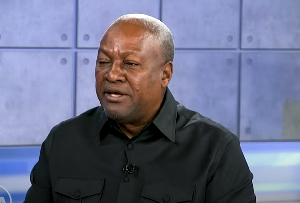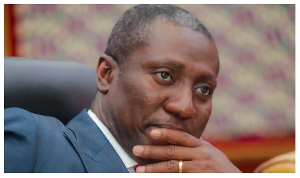Accra, Feb. 15, GNA - Ghana's new Trade Policy, would retain much flexibility and the right to adequately support domestic producers, Mr Alan Kyerematen, Minister of Trade and Industry said on Tuesday during its launch in Accra.
He said the government would fully participate in multilateral trading fora but would do that taking into consideration the interest of the nation in ensuring that the trading rules provided the best for Ghana.
Mr Kyerematen said the 39-page policy document was accomplished through extensive consultation of all stakeholders and had been set out within the framework of achieving the middle-income status by 2012. The Trade Minister said the policy prescriptions of the document would provide a stable environment and make trade friendlier to the private sector, which had been identified as the central focus in the implementation programme.
Mr Kyerematen said the implementation of the policy would be done through a Trade's Sector Support Programme, which was being designed over a five-year period.
He said the key components of the Policy included, creating a fair and transparent import-export regime, facilitating trade, enhancing production capacity for domestic and export markets, consumer protection and fair trade.
Giving an overview of the policy, Mr Kwesi Hagan, Director of Policy Planning, Monitoring and Evaluation at the Ministry said the document sought to encourage investment and raise competitiveness in export and import as well as ensure lower prices to consumers.
He said government's twin strategies of export-led industrialisation and domestic market-led industrialization based on import competition would rely critically on the smooth passage of goods and services across the country's borders.
Mr Hagan said government would ensure, "Speedy and efficient customs clearance and standards inspections for export, import and transit goods, facilitate the provision of adequate infrastructure and ensure effective management of ports, airports and land borders..." He said the policy would ensure access to investment finance and land, support technological upgrading, product research and development and ensure technical training to increase labour productivity.
Under consumer protection, Mr Hagan said government would develop and enforce effective competition, public procurement and consumer protection legislation.
He said it would also protect and administer intellectual property rights and facilitate technology transfer, particularly in strategic sectors.
Click to view details



Business News of Tuesday, 15 February 2005
Source: GNA
















